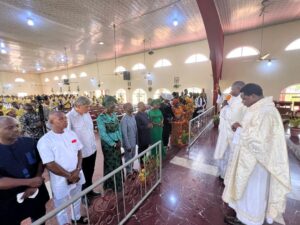
By Gabriel Njoku
A citadel of learning and a leading African financial institution rolled out the drums Saturday in May 2024 in separate celebrations to mark this year’s International Africa Day.

At the University of Uyo, the celebrations were full of pomp and pageantry. There were speeches, songs, dances and theatre. The colourful event was attended by scholars, professors and dignitaries from across the continent, including former Vice President of The Gambia, Mrs. Fatoumata Tambajang; Prof. Mutombo Nkulu-N’Sengha from the United States and a large delegation from several West African countries. In addition, former Nigerian President, Dr. Goodluck Jonathan; Prof. Wole Soyinka and Kenya’s Prof. P.L.O Lumimba sent in goodwill messages.
The celebrations were part of a three-day international conference on Dialogue and Pan Africanism organised by The Pan African Dialogue Institute (TPADI). TPADI is a network of academics, professionals and civil society leaders in different fields of life, within Africa and the diaspora, who are motivated by the best spirit of Pan Africanism to serve the continent and its people worldwide. Led by Dr. Effiong Udo, the institute has a collaborative working relationship with the University of Uyo and is headquartered inside the expansive campus.
Africa Day is celebrated every May 25; the birthday of the Organization of African Unity (OAU). It was on May 25, 1963, that the leaders of the then 32 independent African States signed a founding charter in Addis Ababa, Ethiopia, which brought the OAU into existence. In 2002, the OAU established its own successor, the African Union (AU), and adopted May 25 every year as a day to celebrate Africa and highlight the continent’s continued struggle against neocolonialism, exploitation and adversity. Many Nigerians are not aware of Africa Day, just as a lot of Africans and African leaders, including Nigeria’s, do not even remember to mark International Africa Day.
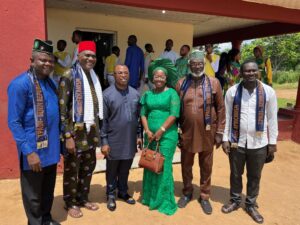
Surprisingly, ever since the day was declared, only nine African countries (The Gambia, Ghana, Guinea, Lesotho, Mali, Mauritania, Zambia and Zimbabwe) are known to observe May 25 as public holiday with celebrations. The other 46 countries, including Nigeria are less aware of this very important day. With the celebrations at UniUyo last Saturday, this year marks the first time that the day is celebrated with the right degree of pomp in Nigeria.
The theme for the 2024 Africa Day is ‘’Educate an African Fit for the 21st Century: Building Resilient Education Systems for Increased Access to Inclusive, Lifelong, Quality and Relevant Learning in Africa’’ – a theme Access Holdings, one of the continent’s leading financial services groups, describes as “a poignant reminder of Africa’s diversity and the need to address the educational challenges faced across the continent”. The Access Group is the only financial institution in Nigeria that has celebrated the day.
Africa is a vast and complex continent of over 1.2 billion people speaking more than 3,000 languages across 54 countries. Despite shared challenges, each nation contributes uniquely to the continent’s rich cultural and historical mosaic. Unfortunately, education remains a significant hurdle. According to UNESCO and the African Union, over a quarter of school-age children in Africa were out of school in 2023, and 90% of children were unable to read or write by age 10. This stark reality underscores the need for urgent educational reforms to equip future generations.
Access Holdings is also celebrating the 2024 Africa Day in a big way. Aligning with this year’s theme, the leading African financial group will once again host the Access Bank/UNICEF Charity Shield Polo Tournament starting from the Children’s Day Anniversary on May 27, 2024, in Kaduna. This event, which will culminate at the Fifth Chukker Polo & Country Club on June 9, will bring together over 150 school pupils and their teachers for a day filled with sports, art activities, and messages promoting child welfare, such as “Stop Child Abuse” and “Childhood Isn’t Meant to Be a Nightmare.”
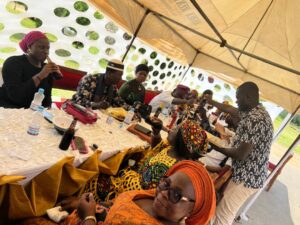
As the largest charity polo tournament in Africa, this event highlights Access Bank’s commitment to supporting underprivileged children, having donated over N700 million towards building schools and providing social amenities for surrounding communities in the past seven years.
Beyond education, there are numerous aspects of African heritage and achievements that deserve celebration. Each African nation offers its uniqueness to the richness of the African beauty and colour. Angola, for example, is Known for its vast oil reserves, Angola is also home to the ancient Tchitundo-Huluvilo Caves, a significant cultural landmark showcasing, prehistoric art. Botswana, celebrated for its stable democracy established by Sir Seretse Khama, is also renowned for producing world-class athletes like Amantle Montsho, a former world champion sprinter. Cameroon is home to the towering Mount Cameroon and the legendary musician Manu Dibango. Cameroon has made significant contributions to global music and boasts rich natural beauty.
The Democratic Republic of Congo (DRC) is known for its rich copper reserves and the majestic Congo River. The DRC is also the birthplace of Patrice Lumumba, a pivotal figure in Africa’s fight for independence and pan Africanism. The Gambia, famous for its beautiful beaches and vibrant culture, is also making strides in education and tourism, becoming a notable destination in West Africa. A beacon of democracy and economic growth in West Africa, Ghana is widely celebrated for its rich history, including the Ashanti Kingdom and significant cultural festivals.
While Guinea, with its rich mineral resources, particularly bauxite, is also known for its vibrant music and dance traditions that play a crucial role in cultural identity, Kenya is remarkable for its breath-taking landscapes and wildlife, and is a leader in environmental conservation and home to world-renowned long-distance runners.
Mozambique is notable for its stunning coastline and rich cultural heritage, in addition to its vibrant arts scene, including music and dance. Nigeria, my country, my fatherland, my pride! Africa’s most populous nation, Nigeria is celebrated for its diverse cultures, Nollywood film industry and significant contributions to literature and music. Through luminaries like Wole Soyinka, Chinua Achebe, Ngozi Chimanda Adichie; Cyprian Ekwensi and Fela Anikulapo Kuti, the Nigerian story is now heard in far-flung shores. Nigeria is also home to Dangote Petrochemical & Refinery, the continent’s largest petroleum refinery.
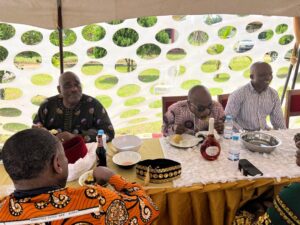
While Rwanda is a symbol of resilience and progress recognised for its remarkable strides in economic development and technological innovation, becoming a model for other African nations, Sierra Leone is easily known for its rich history and natural beauty. The country is also making progress in education and healthcare, contributing to a brighter future for its citizens, South Africa is famous for its stunning landscapes and diverse cultures and is a global leader in mining and a symbol of freedom and reconciliation, epitomised by Nelson Mandela. When you mention Zambia, its spectacular Victoria Falls comes to mind. Zambia is also making significant strides in economic development and conservation efforts.
Access Holdings operates in these African nations contributing uniquely to the continent’s narrative, from historical landmarks to modern achievements in various fields. Said Bolaji Agbede, Acting Group Chief Executive of Access Holdings, “As we continue to consolidate the discourse around the 2024 Africa Day theme, we call on Africans to unite, invest in our incredible human resource even as we work to take our rightful place on the table of deliberations of global significance.”
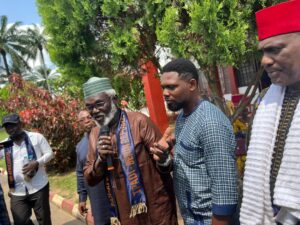
The University of Uyo Vice Chancellor, Prof. Nyaudo Ndaeyo, puts it differently, “The founding fathers of Pan Africanism contributed a lot to past liberation struggles in the continent. They fought for liberation from slave trade, transatlantic slave trade and colonialism. We need a new generation of Pan Africanists to take over and lead Africa through a new set of challenges plaguing the continent.”


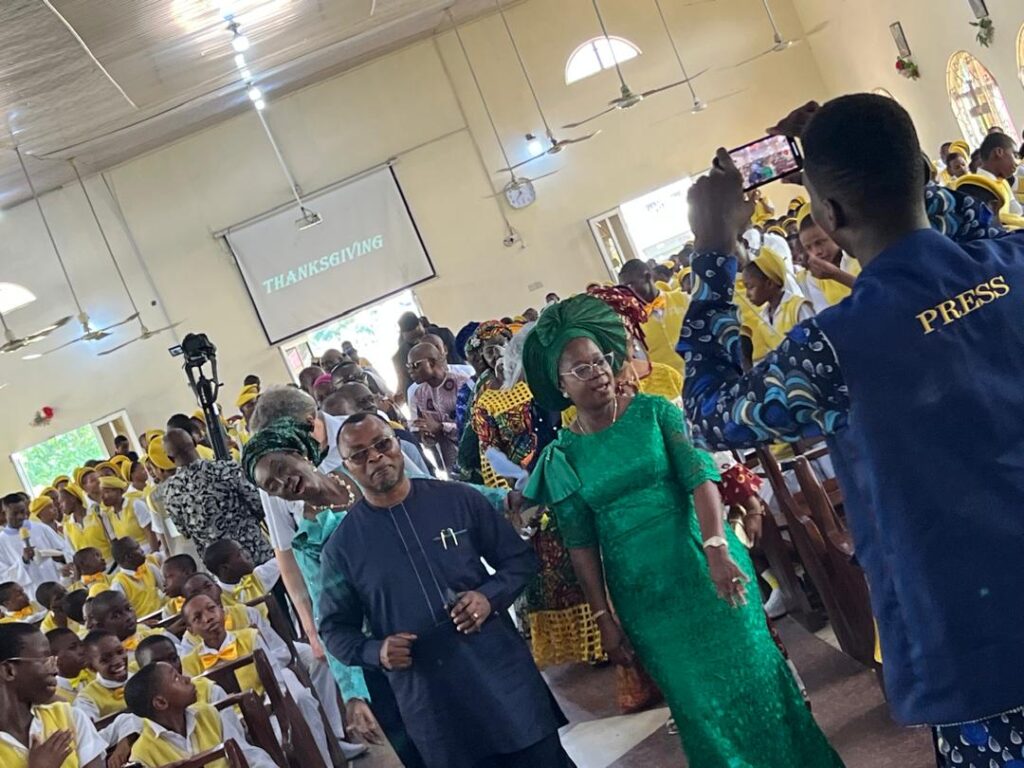

GIPHY App Key not set. Please check settings